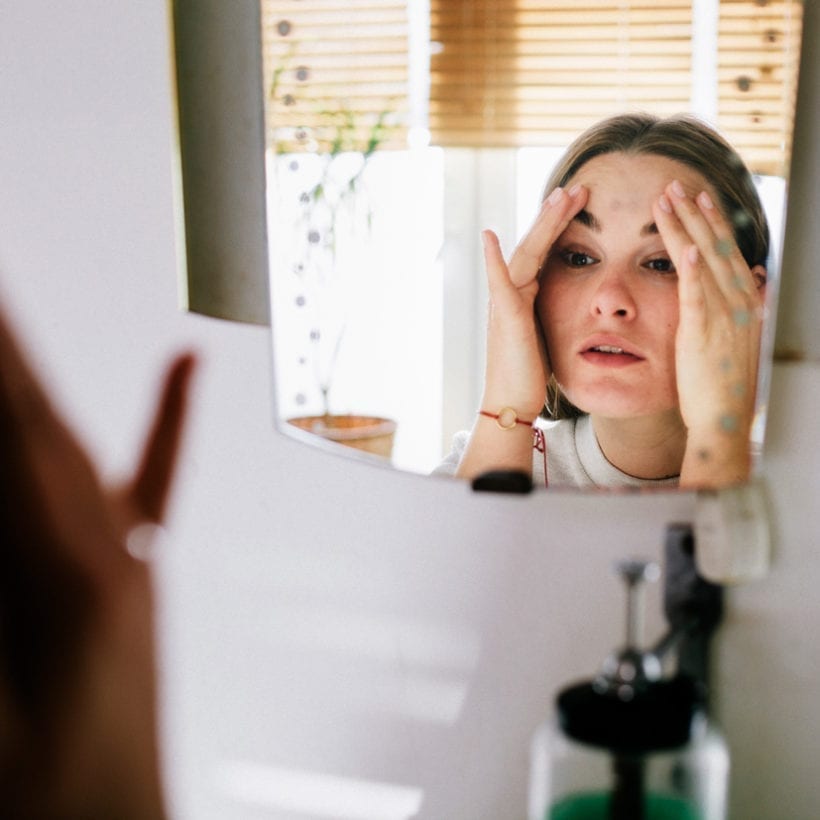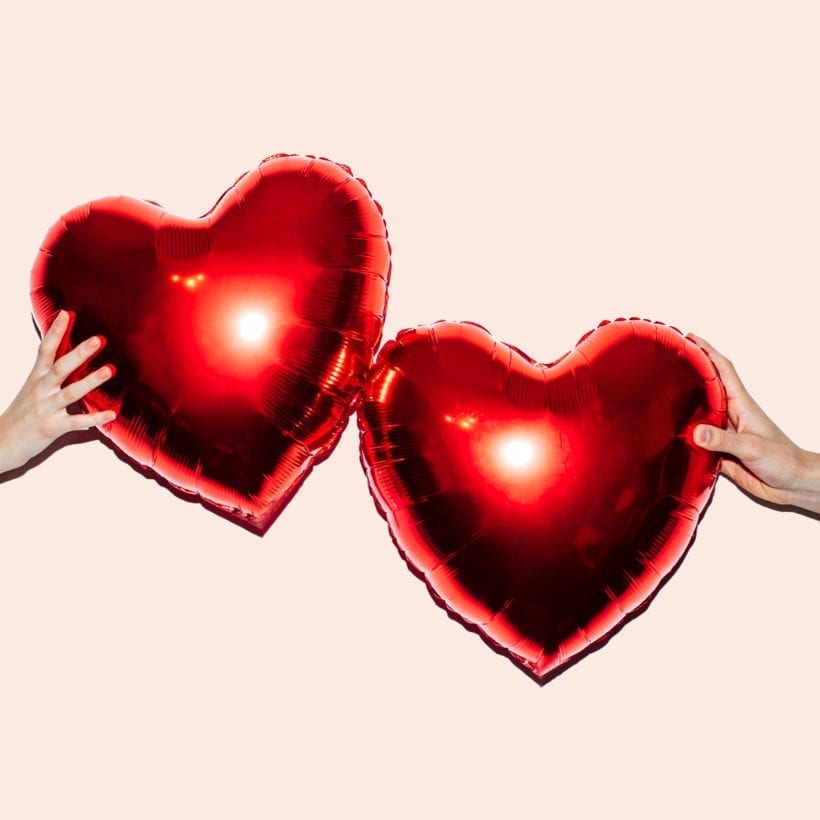“You are glowing,” a friend remarked when we met for coffee a few months ago. “What are you doing differently with your skin?”
I could tell from the way she was inspecting my pores that she was not just issuing an empty compliment. She wanted answers, ideally, in the form of a new serum or moisturizer, she could purchase.
I paused, reflecting on my skincare regimen. Same milk cleanser and gentle moisturizer twice daily, Retin-A applied a couple of times a week, collagen mixed into my smoothies when I could remember. I had not really changed anything, I confessed, watching her face fall.
She shrugged as she stirred some almond milk into her coffee. “I guess you just have that new love glow.”
A quick glance at my Instagram confirmed that I was, in fact, newly in love. After years of awkward first dates and mini-flings, I was finally in a healthy relationship. And I was effectively shouting about it from the Internet rooftops for everyone to hear (or see). Annoying? Sure. But I was happy. And apparently, my skin was happy too.
The Role of Oxytocin In Skin Health
It may feel like magic, but there is a science to love. You have probably heard of oxytocin, frequently referred to as the “love hormone.” Research confirms that there is indeed a link to oxytocin, a naturally occurring hormone, and feelings of love. In a 2012 study, couples in the midst of early romantic relationships exhibited significantly higher levels of oxytocin than their single peers.
A quick recap for those, like me, who may not have loved science class: oxytocin is produced by the hypothalamus, located at the base of the brain, and secreted by the pituitary gland. We get a hit of this natural high when our brains release hormones like dopamine and increase levels of serotonin through activities like sex, physical touch, and experiencing early romantic feelings.
“I guess
you just
have that
new love glow.”
But what does oxytocin do once it has been produced? A lot, it turns out. Research suggests that oxytocin can positively impact our emotions and help us feel more relaxed, decreasing stress and anxiety levels when released into certain parts of the brain. Some studies also show that oxytocin reduces free radicals and inflammation in the skin, too.
I started paying attention to both my skin and mood on routine days (the ones where I went to work, ran errands, and called my mom) versus ones where my boyfriend and I also spent time together. I noticed I felt calmer the morning after seeing my boyfriend. I was less likely to complain after just missing the subway, and felt less stressed even when a big deadline was looming. Smelled like the effects of oxytocin to me. But could this hormone really be helping my stress levels and keeping my face from freaking out, too?
“Almost all skin conditions flare with stress,” says New York City dermatologist Elyse M. Love, M.D. “My patients with very mild eczema, psoriasis, or acne will often find that their normal regimen no longer controls their symptoms when they are stressed. Stress management is a key part of our treatment regimen. In general, we are happier with our skin when we are happier.”
How Does Sex Impact Your Skin?
I took my investigation further into the correlation between love and healthy skin by chatting with Shan Boodram, intimacy expert, sexologist, and author of The Game of Desire: 5 Surprising Secrets to Dating with Dominance — and Getting What You Want. We started with the cornerstone of any good relationship: sex.
“Sex (especially sex that includes orgasms) can be helpful in improving the skin’s appearance through spiking dehydroepiandrosterone (DHEA) hormone levels in the body,” Shan explains. “Some small studies do show DHEA can increase skin thickness, skin hydration, and decrease facial pigmentation. Also, although it is largely a myth that people get a good workout with sex, if you do happen to have a session that gets the heart rate up for a consistent amount of time and you break a sweat, that can help to clean out your pores, too.”
The Role of that Adrenaline Rush On Your Skin
Shan’s mention of breaking a sweat reminded me of something else I had noticed in the last few weeks. I often flushed with excitement and felt a sort of buzzing in my stomach before a date, kind of like the adrenaline rush I got during a spin class. I wondered if this repeated hit of both oxytocin and adrenaline could be impacting my skin’s appearance.
“We know that exercise benefits skin health by increasing blood flow to the skin,” Love says. “This blood flow increases oxygen and nutrient delivery to the skin and facilitates the removal of free radicals and other waste products from skin cells. The adrenaline rush and flush you are describing when seeing a new partner are like a micro internal cleanse for your face.” An excitement-induced internal cleanse sounded nice; way more fun than the green juice variety.
The Bottom Line
Overall, the science behind that “love glow” is a combination of several elements at once: oxytocin reducing stress levels, increased oxygen and nutrient delivery to the skin due to more blood flow, and maybe a spike in DHEA increasing skin hydration after sex. Plus, a generally happier state, which certainly does not hurt our complexions. But while good sex can certainly contribute to a dewier you, Shan cautions that the promise of moderately better skin is no reason to rush into a lackluster relationship. “Just because someone has a beard that stunt doubles as an exfoliator, doesn’t mean they are actually a quality partner,” she quips.
For the record, my skin was just fine when I was single. And you do not need the “love hormone” to combat stress. Techniques like meditation and exercise can also take the edge off and a good skincare regimen can recreate a perfectly satisfactory glow. But if you happen to meet someone you like enough to make it Instagram official, a little extra glow is a nice bonus.
We only recommend products we have independently researched, tested, and loved. If you purchase a product found through our links, Sunday Edit may earn an affiliate commission.







